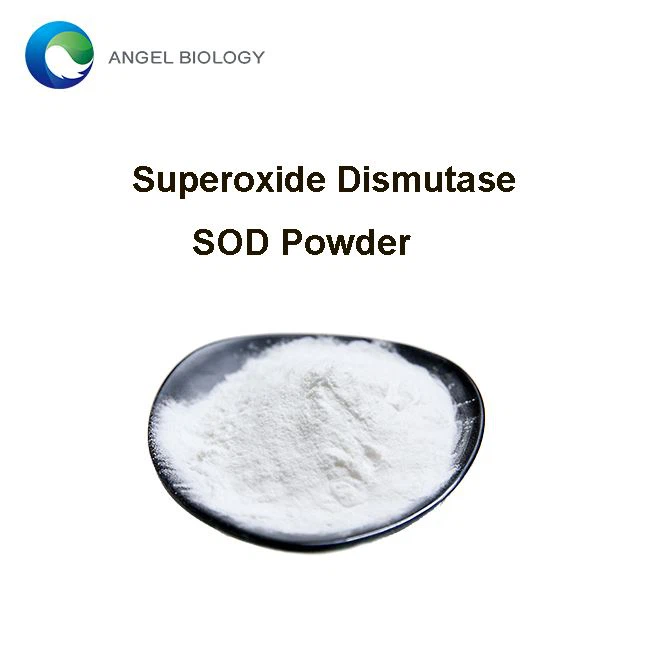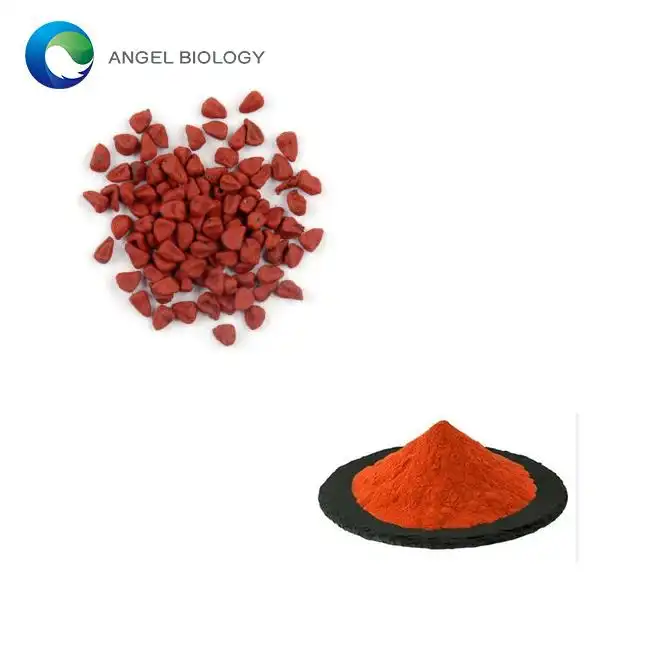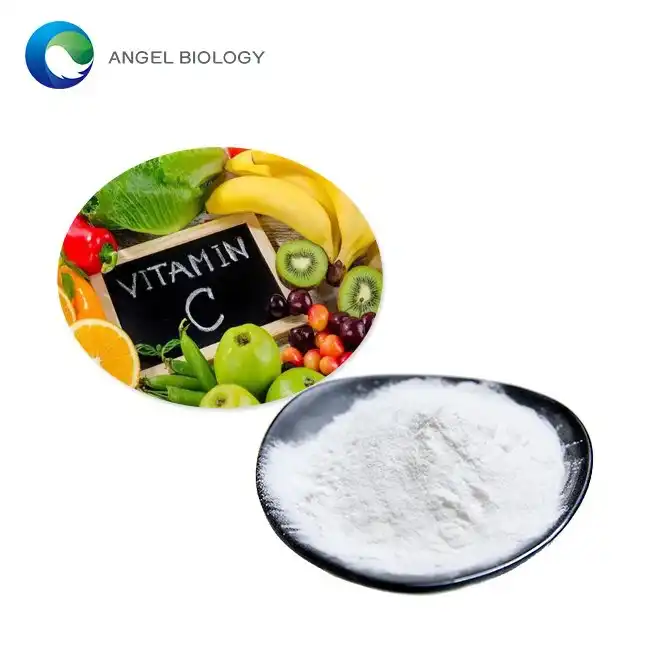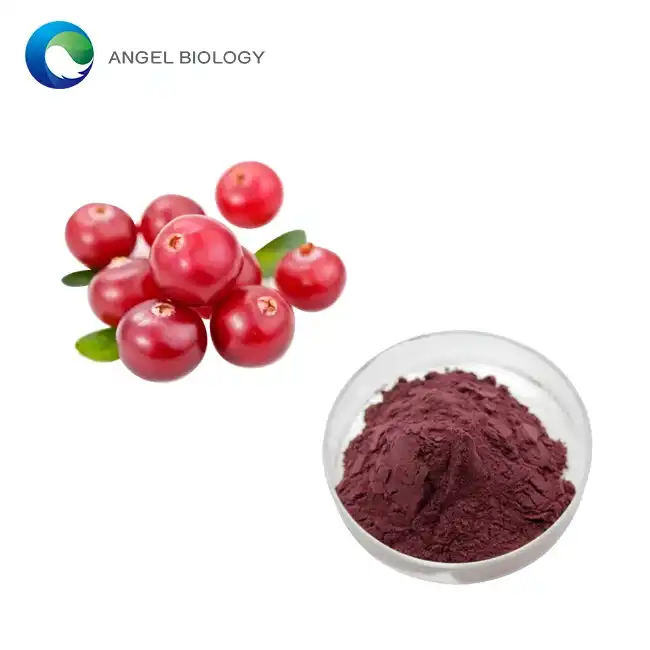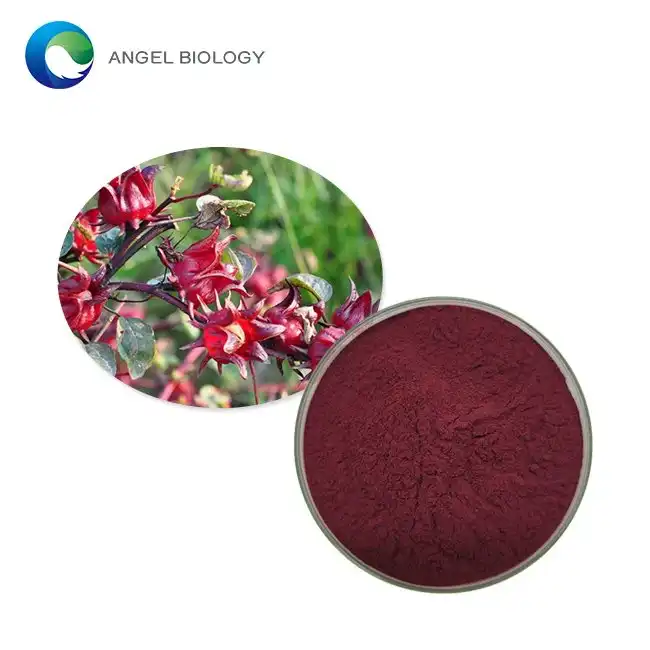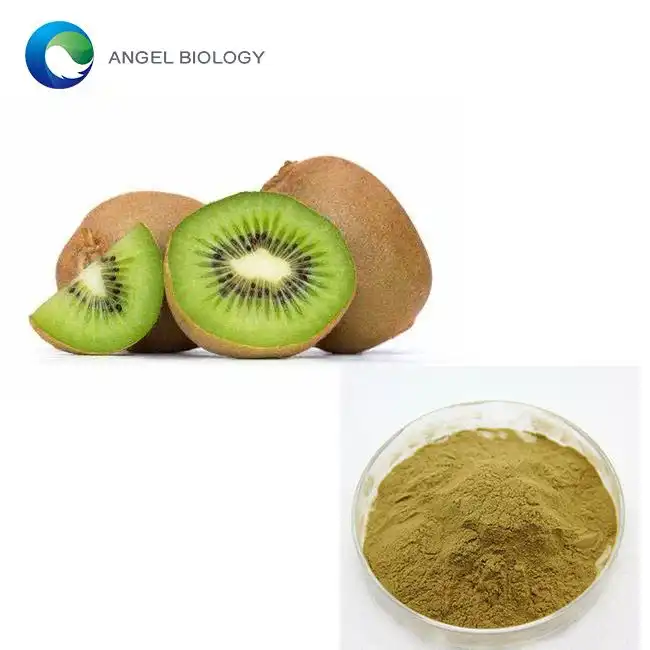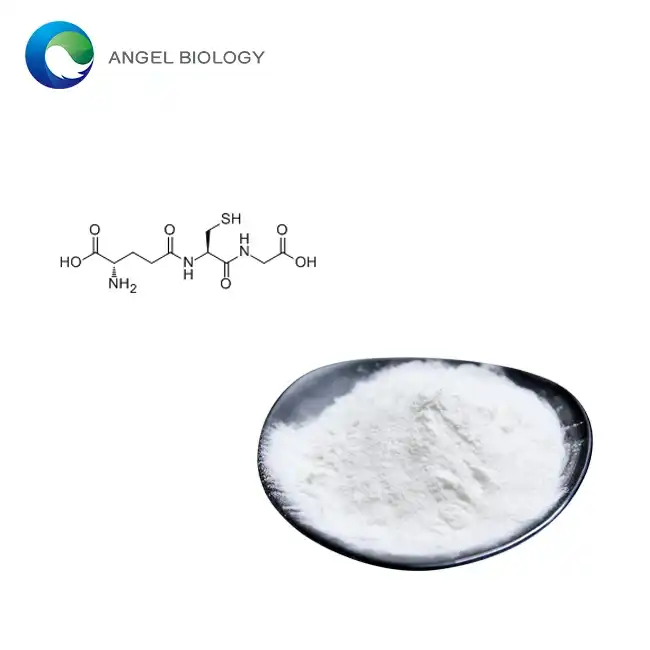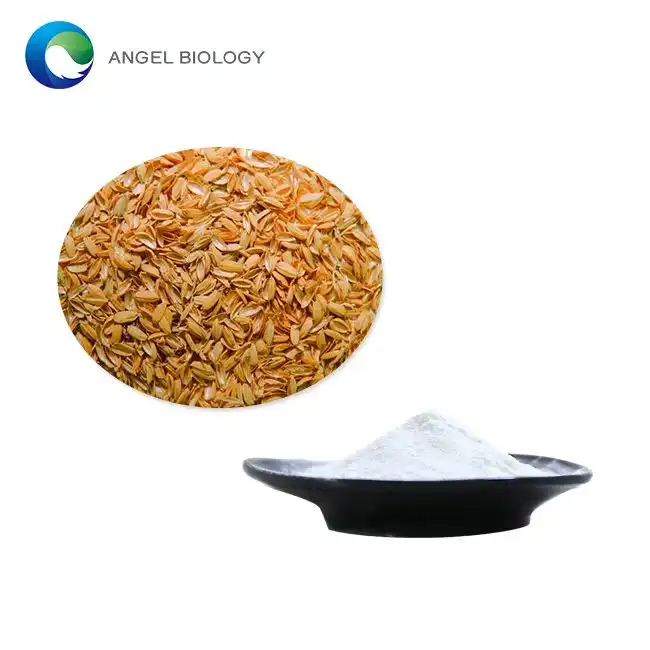What Are the Key Active Compounds in Wolfberry Extract?
Wolfberry extract, derived from the nutritious goji berry, has gained significant attention in recent years due to its potential health benefits. This powerful extract is rich in various bioactive compounds that contribute to its therapeutic properties. In this blog post, we'll explore the key active compounds found in wolfberry extract and delve into their potential effects on human health. Understanding these components can help us appreciate the value of this natural supplement and its applications in various industries, from nutrition to cosmetics.
What Makes Wolfberry Extract So Nutritionally Dense?
Polysaccharides: The Immune-Boosting Powerhouses
Wolfberry extract is renowned for its high content of polysaccharides, particularly Lycium barbarum polysaccharides (LBPs). These complex carbohydrates are among the most studied components of wolfberry extract, known for their potent immunomodulatory effects. LBPs have been shown to enhance the function of various immune cells, including T cells, B cells, and natural killer cells. In addition to their immune-boosting properties, LBPs also exhibit antioxidant and anti-inflammatory effects, which may contribute to their potential in preventing chronic diseases. Research has indicated that these polysaccharides may help improve overall health by supporting cardiovascular function, regulating blood sugar levels, and even offering neuroprotective benefits.
Carotenoids: Nature's Antioxidant Palette
Carotenoids, especially zeaxanthin and beta-carotene, are another important class of chemicals included in wolfberry extract. These pigments contribute significantly to the extract's antioxidant qualities and give goji berries their vivid reddish-orange hue. Because it builds up in the retina and may help prevent age-related macular degeneration, zeaxanthin in particular is well-known for its potential advantages in eye health. The extract's pro-vitamin A action is aided by beta-carotene, a precursor to vitamin A that also promotes healthy skin, eyesight, and the immune system. Wolfberry extract differs from other natural antioxidant sources due to its distinct carotenoids, which makes it a useful component of cosmetics and nutritional supplements.
Flavonoids: The Versatile Phytonutrients
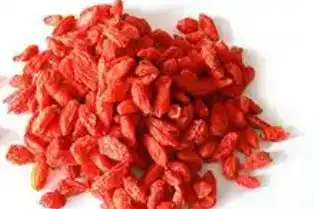
Flavonoids, a broad class of plant chemicals with a host of health benefits, are likewise abundant in wolfberry extract. These bioactive compounds are well-known for their anti-inflammatory, anti-cancer, and antioxidant properties. Some of the major flavonoids identified in wolfberry extract are quercetin, kaempferol, and myricetin. These compounds work synergistically with other components in the extract to enhance its overall therapeutic effects. Research has shown that the flavonoids in wolfberry extract may contribute to its cardioprotective properties, help regulate blood lipid levels, and even possess neuroprotective effects. The presence of these versatile phytonutrients further enhances the value of wolfberry extract as a natural ingredient in various health and wellness applications.
How Does Wolfberry Extract Support Overall Health?
Antioxidant Properties: Combating Oxidative Stress
The strong antioxidant qualities of wolfberry extract are among the most important ways it promotes general health. The extract's polysaccharides, carotenoids, and flavonoids combine to form a potent antioxidant complex that can aid in the body's defense against dangerous free radicals. The prevention of oxidative stress, which is linked to a number of chronic illnesses and the aging process, depends heavily on this antioxidant action. According to studies, taking wolfberry extract on a regular basis may help lower the body's oxidative stress markers, which could minimize the risk of developing diseases including diabetes, heart disease, and some types of cancer. Wolfberry extract's antioxidant qualities also make it a useful component of skincare products since they may help shield the skin from aging and environmental harm.
Immune System Support: Enhancing Natural Defenses
Wolfberry extract is widely recognized for its ability to support and modulate the immune system. Numerous immune cells' generation and activity have been demonstrated to be stimulated by the extract's polysaccharides, especially LBPs. The body can better fight off infections thanks to this immune-boosting impact, which may even increase the efficacy of vaccinations. Furthermore, the extract's anti-inflammatory qualities may help those with autoimmune diseases by regulating immune responses. The innate immune system, the body's initial line of defense against infections, may also benefit from wolfberry extract, according to research.By supporting overall immune health, wolfberry extract may contribute to increased resistance to illness and improved recovery times.
Neuroprotective Effects: Supporting Brain Health
Wolfberry extract is an intriguing topic of investigation in the realm of cognitive health because recent studies have shown its possible neuroprotective benefits. The extract's anti-inflammatory and antioxidant qualities may aid in shielding brain cells from inflammation and oxidative damage, two factors linked to neurodegenerative illnesses. According to certain research, taking wolfberry extract on a regular basis may aid enhance cognitive abilities including focus and memory. The zeaxanthin found in the extract may also play a role in protecting the eyes and visual pathways, which are closely connected to brain health. Furthermore, the polysaccharides in wolfberry extract have shown potential in supporting the growth and survival of neurons, which could have implications for brain plasticity and repair. While more research is needed to fully understand the mechanisms behind these neuroprotective effects, the potential of wolfberry extract in supporting brain health is promising.
What Are the Potential Applications of Wolfberry Extract in Various Industries?
Nutritional Supplements: A Natural Health Booster
Wolfberry extract has found broad application in the nutritional supplement market, thanks to its rich nutrient profile and potential health advantages. As a nutritional supplement, it is commonly touted for its antioxidant capabilities, immune-boosting effects, and ability to enhance general wellness. The extract is easily incorporated into everyday health routines because it comes in a variety of forms, such as liquid extracts, powders, and capsules. Some supplement manufacturers combine wolfberry extract with other natural ingredients to create targeted formulations for specific health concerns, such as eye health, immune support, or anti-aging. The versatility of wolfberry extract allows for its inclusion in multivitamin complexes, superfood blends, and even functional beverages. As consumer interest in natural and plant-based supplements continues to grow, wolfberry extract is likely to maintain its popularity in the nutritional supplement market.
Cosmetics and Skincare: Natural Beauty Solutions
The cosmetics and skincare industry has also embraced wolfberry extract as a valuable ingredient in various products. The extract's high antioxidant content makes it particularly attractive for anti-aging formulations, as it may help protect the skin from free radical damage and oxidative stress. Some skincare products incorporate wolfberry extract for its potential to improve skin elasticity, reduce the appearance of fine lines, and promote a more youthful complexion. The anti-inflammatory properties of the extract may also benefit those with sensitive or irritated skin. Additionally, the carotenoids in wolfberry extract, particularly zeaxanthin, may help protect the skin from UV damage when used in conjunction with proper sun protection. From serums and moisturizers to face masks and eye creams, wolfberry extract is finding its way into a wide range of skincare products, appealing to consumers seeking natural and effective beauty solutions.
Food and Beverage Industry: Functional Ingredient
Wolfberry extract has also made significant inroads in the food and beverage industry as a functional ingredient. Its naturally sweet flavor profile and potential health benefits make it an attractive addition to various products. In the beverage sector, wolfberry extract can be found in herbal teas, smoothie blends, and functional drinks marketed for their antioxidant properties or energy-boosting effects. Some food manufacturers incorporate the extract into snack bars, cereals, and dried fruit mixes as a way to enhance nutritional value and appeal to health-conscious consumers. The extract's potential to support eye health has led to its inclusion in some functional foods targeting visual wellness. As the demand for natural, plant-based ingredients continues to rise, wolfberry extract is likely to see increased use in the development of innovative food and beverage products that combine flavor with potential health benefits.
profile and potential health benefits make it an attractive addition to various products. In the beverage sector, wolfberry extract can be found in herbal teas, smoothie blends, and functional drinks marketed for their antioxidant properties or energy-boosting effects. Some food manufacturers incorporate the extract into snack bars, cereals, and dried fruit mixes as a way to enhance nutritional value and appeal to health-conscious consumers. The extract's potential to support eye health has led to its inclusion in some functional foods targeting visual wellness. As the demand for natural, plant-based ingredients continues to rise, wolfberry extract is likely to see increased use in the development of innovative food and beverage products that combine flavor with potential health benefits.
Conclusion
Wolfberry extract is a powerhouse of bioactive compounds, including polysaccharides, carotenoids, and flavonoids, each contributing to its impressive nutritional profile and potential health benefits. From supporting immune function and providing antioxidant protection to offering potential neuroprotective effects, this versatile extract has found applications across various industries. As research continues to uncover the full potential of wolfberry extract, it remains a valuable ingredient in nutritional supplements, cosmetics, and functional foods. With its rich composition of active compounds, wolfberry extract stands as a testament to the power of natural ingredients in promoting health and wellness.
Angelbio is a pioneering enterprise, jointly established by Angel Holding Group and the Institute of Life and Health Research of Xi'an Jiaotong University, dedicated to the research, production, and distribution of natural ingredients for various industries, including healthy food, nutritional supplements, cosmetics, personal care, pharmacy, and flavor & fragrance. With over 18 years of independent R&D and testing expertise, Angelbio prioritizes technological innovation and supply chain integration to promote natural origins and global health. Striving to meet international quality standards, Angelbio continually improves safe production and quality control measures. Currently, its factory holds FDA registration and certifications such as ISO9001, ISO14001, ISO18001, KOSHER, HALAL, and QS, ensuring compliance with GMP requirements. Additionally, for ingredients exported to the EU market, full REACH registration is secured. Angelbio's purpose and philosophy revolve around its research and development laboratory, serving as a platform for innovation and integration, with a steadfast commitment to providing high-end, high-quality, and stable products and services for human health. As a leading Wolfberry Extract Powder manufacturer in China, Angelbio's products are trusted and praised by customers. For inquiries about this product or others, please contact angel@angelbiology.com for dedicated service. These represent Angelbio's corporate advantages.
References
1. Zhang, L., et al. (2019). "Lycium barbarum polysaccharides: Extraction, purification, structural characterisation and evidence about hypoglycaemic and hypolipidaemic effects. A review." Food Chemistry, 278, 204-214.
2. Cheng, J., et al. (2015). "An updated review of the bioactive components in wolfberry and their health benefits." Journal of Functional Foods, 18, 590-603.
3. Amagase, H., & Farnsworth, N. R. (2011). "A review of botanical characteristics, phytochemistry, clinical relevance in efficacy and safety of Lycium barbarum fruit (Goji)." Food Research International, 44(7), 1702-1717.
4. Potterat, O. (2010). "Goji (Lycium barbarum and L. chinense): Phytochemistry, pharmacology and safety in the perspective of traditional uses and recent popularity." Planta Medica, 76(1), 7-19.
5. Xiao, J., et al. (2012). "Lycium barbarum polysaccharides: A novel eye-protective agent." In Bioactive Food as Dietary Interventions for the Aging Population (pp. 657-664). Academic Press.
6. Chang, R. C., & So, K. F. (2015). "Use of anti-aging herbal medicine, Lycium barbarum, against aging-associated diseases. What do we know so far?" Cellular and Molecular Neurobiology, 35(1), 5-17.



